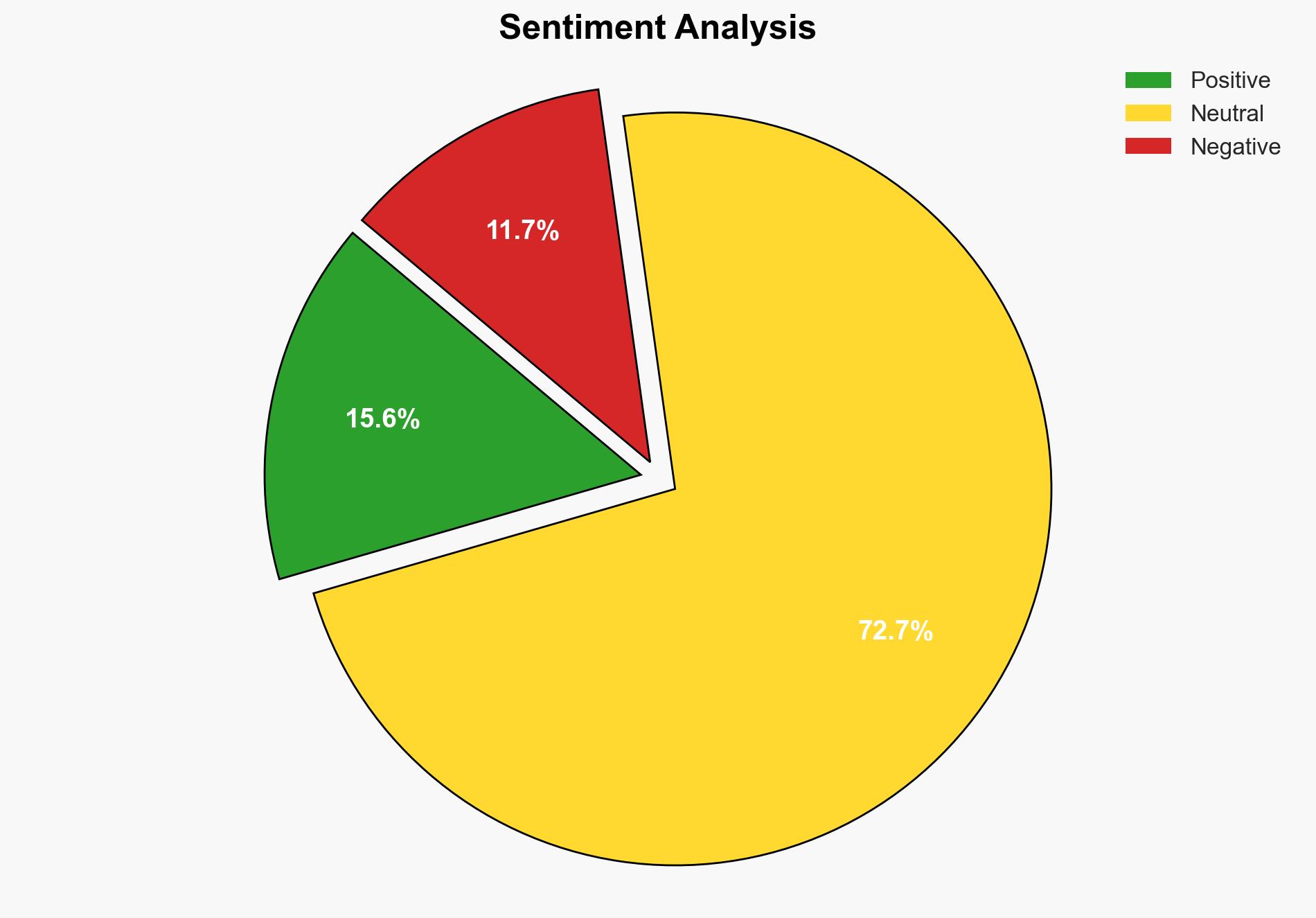Homeland Security Revokes Temporary Status For 532000 Cubans Haitians Nicaraguans And Venezuelans – HuffPost
Published on: 2025-03-22
Intelligence Report: Homeland Security Revokes Temporary Status For 532000 Cubans Haitians Nicaraguans And Venezuelans – HuffPost
1. BLUF (Bottom Line Up Front)
The Department of Homeland Security has revoked the temporary legal status of 532,000 individuals from Cuba, Haiti, Nicaragua, and Venezuela. This decision affects those who arrived in the United States after October without a financial sponsor, potentially leading to deportations starting in April. The policy change challenges existing humanitarian parole programs and has sparked legal and social opposition.
2. Detailed Analysis
The following structured analytic techniques have been applied for this analysis:
General Analysis
The revocation of temporary status is a continuation of previous administrative policies aimed at curbing immigration pathways deemed as being misused. The decision aligns with past efforts to limit humanitarian parole, a tool historically used to allow temporary entry for individuals from countries experiencing war or political instability. The policy change is expected to create significant legal and logistical challenges, both for the affected individuals and the U.S. immigration system.
3. Implications and Strategic Risks
The revocation poses several risks:
- National Security: Potential increase in unauthorized immigration as legal pathways are restricted.
- Regional Stability: Strain on diplomatic relations with countries like Cuba, Venezuela, Nicaragua, and Haiti, which may refuse deportation flights.
- Economic Interests: Impact on labor markets, particularly in sectors reliant on immigrant labor, and potential economic instability in affected communities.
4. Recommendations and Outlook
Recommendations:
- Enhance diplomatic engagement with affected countries to facilitate deportation processes and ensure humane treatment of returnees.
- Develop alternative legal pathways to address humanitarian needs while maintaining border security.
- Implement community support programs to mitigate the impact on affected families and local economies.
Outlook:
Best-case scenario: Successful diplomatic negotiations lead to orderly deportations and minimal disruption.
Worst-case scenario: Increased unauthorized immigration and strained international relations.
Most likely outcome: Legal challenges delay implementation, leading to temporary status extensions for some individuals.
5. Key Individuals and Entities
The report mentions significant individuals and organizations:
- Kristi Noem
- Karen Tumlin
- Elliot Spagat
- Tim Sullivan





